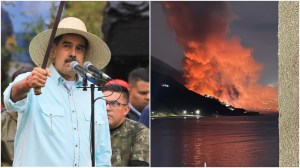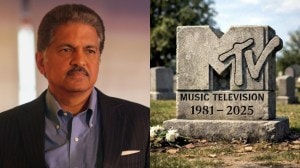How free is free enough
When the Janata Party was swept to power in 1977, it was but natural for the leaders incarcerated during the Emergency to repeal the notorio...

When the Janata Party was swept to power in 1977, it was but natural for the leaders incarcerated during the Emergency to repeal the notorious Maintenance of Internal Security Act MISA. But when the nation attained Independence 30 years earlier, our Founding Fathers had, by and large, retained the no less repressive laws under which many of them had been imprisoned during the colonial rule.
Call it pragmatism or a compromise. The fact is, after much debate and study, the Constituent Assembly made a trade-off between the personal liberty of individuals and the internal security of the collective. For all its exertions to vest the citizen with a series of fundamental rights, the Constituent Assembly also empowered the Executive to detain him for long periods without any judicial scrutiny.
Given the ongoing controversies over two repressive laws, Prevention of Terrorism Act POTA and Armed Forces Special Powers Act AFSPA, it is apt to recall the heated exchanges that preceded the adoption of Article 22. Mahavir Tyagi made a rather personal attack on the great Ambedkar as he was the chairman of the drafting committee which proposed to perpetuate preventive detention laws.
Tyagi: Sir, Dr Ambedkar will please pardon me when I express my fond wish that he and other members of the drafting committee had the experience of detention in jail before they became members of the drafting committee.
Ambedkar: I shall try hereafter to acquire that experience.
Tyagi: I may assure Dr Ambedkar that although the British Government did not give him this privilege, the Constitution he is making with his own hands will give him that privilege in his lifetime.
Tyagi was not alone in speaking so passionately against the dangers of accommodating repressive laws. Yet, a majority of the Constituent Assembly members, despite experiencing jail like Tyagi during the freedom struggle, voted in favour of Ambedkar8217;s proposal amidst the trauma of Partition and secessionist threats from various parts of the country.
Another factor that clinched the issue was a brilliant defence of Ambedkar8217;s position by a member of the drafting committee, Alladi Krishnaswami:
8216;8216;It is agreed on all hands that the security of the State is as important as the liberty of the individual. Having guaranteed personal liberty, having guaranteed that a person should not be detained or arrested for more than 24 hours, the problem necessarily had to be faced as to detention, because detention has become a necessary evil under the existing conditions of India.
8216;8216;Even the most enthusiastic advocate of liberty says there are people in this land at the present day who are determined to undermine the Constitution and the State, and if we are to flourish and if liberty of person and property is to be secured, unless that particular evil is removed or the State is invested with sufficient power to guard against that evil, there will be no guarantee even for that individual liberty of which we are all desirous,8217;8217; Alladi had said.
The debate that took place at a nascent stage of nation-making bears a contemporary resonance. Tyagi warned Amdedkar that he might himself become a casualty of the draconian provision he proposed in the Constitution. Ambedkar had escaped such a fate but, more than five decades later, Vaiko was hoisted by his own petard. In the post-9/11 situation, Vaiko voted in Parliament in favour of POTA despite its draconian provision, for instance, to convict anybody who could be alleged to have addressed a meeting in support of a terrorist organisation. Soon after, Vaiko was detained for 19 months under POTA without trial for allegedly speaking in support of Tamil Tigers. And the UPA Government8217;s decision to do away with POTA has coincided with a resurgence of terrorist attacks in Kashmir.
Similarly, Alladi8217;s exposition in the Constituent Assembly on the danger posed by secessionist forces to the liberty of the individual is vindicated by the crisis in Manipur. The Centre has to tread the tricky path between maintaining internal security and protecting personal liberty.
- 01
- 02
- 03
- 04
- 05































